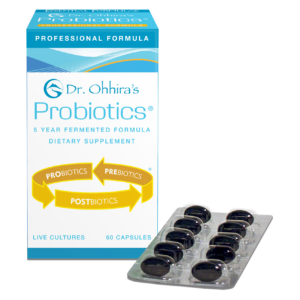Ross Pelton, RPh, PhD, CCN
September 5, 2017
Constipation is one of the most common health problems people have on a day-to-day basis. I know this first hand from working in retail pharmacy for years. Pharmacists regularly fill prescriptions to address constipation issues. Virtually every week customers would come to the pharmacy counter and ask me for advice on OTC products to relieve constipation.
Also, America’s constipation problems are getting worse. A study reported in the American Journal of Gastroenterology reported an alarming increase in constipation related trips to the ER. From 2006 to 2011 emergency room visits from people who couldn’t find relief increased an amazing 41.5%, from 497,034 to 703,391 per year.[i]
It also seemed to me that far more women than men suffered from constipation. Now there is data to support my observation. In a large 12-year survey (1988-2003), 17.4% of the thousands of people surveyed reported suffering from chronic constipation. Results from this study also reported that among individuals less than 50 years old, twice as many women (18.3%) suffered from chronic constipation compared to men (9.2%).[ii]
There are some medical issues that can cause elimination problems such as tumors, conditions affecting nerves in the intestines such as Parkinson’s disease and multiple sclerosis and also hormone imbalances such as hypothyroidism, diabetes and pregnancy. The following classes of drugs can also cause constipation: narcotic pain meds, antacids, some antidepressants, blood pressure meds, calcium and iron supplements and antihistamine cold medicines.
However, in many cases, diet and lifestyle issues that are easily correctible cause constipation and these are the issues I want to address in this article.
Dehydration
Not drinking enough water is one of the most common causes of constipation. Drinking a glass of water every hour or so is more effective than drinking a large quantity of water at once.
Lack of Fiber
Dietary fiber is so important, it should be recognized as an essential nutrient. Fiber is the type of carbohydrate found in plant foods and it works by absorbing water, which makes stools soft enough to pass through the intestines. In addition to motility issues, fiber is also a critical factor in maintaining a heathy microbiome because fiber is the “food” that supports the growth of your beneficial probiotic bacteria. When it comes to “feeding” your probiotic bacteria, diversity of fiber is much more important than quantity of fiber. People should strive to eat as many different kinds of colored fruits and vegetables on a daily basis rather than just eating a large quantity of one type of fiber-containing food.
My 8-minute Youtube video titled: Ross’ Salad Buzz teaches people how to save an enormous amount of time making salads. This encourages people to consume fresh salads more regularly, which promote the growth of a more diverse population of probiotic bacteria.
Lack of Exercise
Americans are too sedentary. Movement sends signals to the intestines that stimulate peristalsis and the urge to evacuate. Squats are a form of exercise that almost everyone can easily engage in. Squats engage your glutes, which are the largest muscles in your body. This also forces you to engage your core abdominal muscles which also facilitates the signals to eliminate.
Dysbiosis
This term refers to imbalances between good and bad bacteria in the GI tract that causes symptoms such as gas, bloating, pain, inflammation, constipation and/or diarrhea. Many people don’t realize that dysbiosis, meaning too many bad bacteria and/or not enough beneficial probiotic bacteria, is one of the most common factors contributing to intestinal dysfunction.
Your gut, your microbiome, your probiotic bacteria,
the 100 trillion bacteria that reside in your intestinal tract
are involved in regulating all functions of the human body.
An estimated 70-100 million Americans suffer from digestive problems.
Clinical trial:
Dr. Ohhira’s Probiotics is a Successful Treatment for Constipation
The results of the following study were presented on July 19, 2017 at the 69th Annual meeting of the Japan Society of Nutrition and Food Science.
The title of this study is:
The Constipation Ameliorating Action
of the Fermented Vegetable Extract
Dr. Ohhira’s Probiotics®
Female college students with a history of constipation were recruited for this study. Age-matched female college students without constipation were used as control subjects. Both groups of women began taking Dr. Ohhira’s Probiotics.
-
 Dr. Ohhira’s® Probiotic Supplements$13.95 – $89.95
Dr. Ohhira’s® Probiotic Supplements$13.95 – $89.95 -
 Reg´Activ Essential ME-3$39.95
Reg´Activ Essential ME-3$39.95 -
 Dr. Ohhira’s® Probiotics Professional Formula$39.95 – $129.65
Dr. Ohhira’s® Probiotics Professional Formula$39.95 – $129.65
RESULTS: As shown in the graphs below, women with constipation gained significant improvement in defecation frequency (the number of bowel movements) and stool output (the quantity of feces in bowel movements). These women also reported improvements in the smell, shape and color of their stools and significant relief after bowel movements. Taking Dr. Ohhira’s Probiotics® resulted in no changes in the frequency and nature of bowel movements in the control subjects who initially were not suffering from constipation.
In their consulting remarks, the authors of this study stated that, based on the results of this study, the ingestion of Dr. Ohhira’s Probiotic capsules facilitates the relief of constipation and improves the quality of feces in women who suffer from constipation.
Note: In Japan,
Dr. Ohhira’s Probiotics® are marketed under the brand name OM-X
[i] Sommers T, et al. Emergency Department Burden of Constipation in the United States from 2006 to 2011. Am J Gastroenterol. April 2015;110:572-579.
[ii] Sanchez M, Berick P. Epidemiology and burden of chronic constipation. Can J Gastroenterol. 20ll Oct;25(Supp B):11B-15B.







